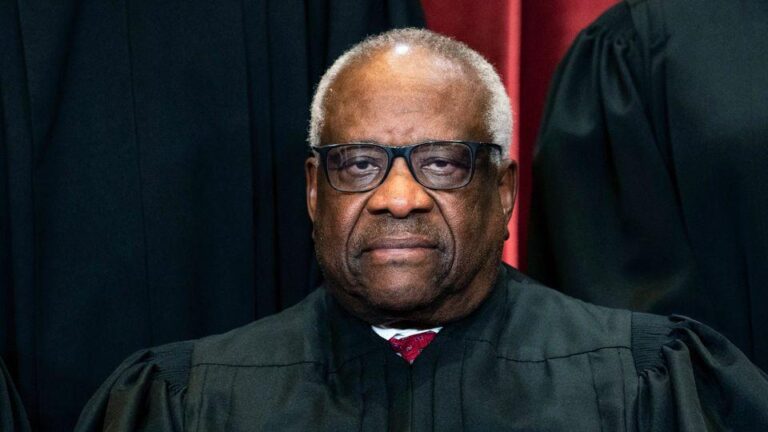The U.S. Supreme Court has temporarily halted a lower court’s ruling that threatened to significantly weaken key provisions of the Voting Rights Act, a landmark law designed to protect against discriminatory voting practices. The decision to pause the ruling comes amid ongoing national debates over voting rights and election integrity, underscoring the high stakes involved as the justices prepare for a potentially pivotal review of the legislation’s future. This unexpected intervention by the Court has sparked renewed attention on the evolving landscape of voting rights protections across the country.
Supreme Court Halts Decision on Voting Rights Act Impacting State Election Laws
The Supreme Court has temporarily halted its decision concerning recent challenges to the Voting Rights Act, a move that has sparked widespread discussion across the political spectrum. This pause comes amid mounting concerns that previous rulings could undermine federal protections designed to prevent discriminatory voting practices in various states. Legal experts emphasize that the Court’s intervention underscores the ongoing complexity surrounding election law and civil rights enforcement in the United States.
Key developments so far include:
- States with contested election laws seeking to enforce new voting restrictions.
- Advocates arguing that these restrictions disproportionately affect minority voters.
- The federal government urging the preservation of safeguards to ensure equal access at the polls.
| State | Voting Law Status | Impact Assessment |
|---|---|---|
| Texas | New restrictions challenged | High concern for minority voter access |
| Georgia | Legislation under review | Mixed potential for voter impact |
| Arizona | Laws currently enforced | Ongoing legal battles expected |
Legal Experts Analyze Potential Consequences of the Court’s Pause on Voting Rights Protections
Legal authorities emphasize that the Supreme Court’s decision to pause the ruling undermining the Voting Rights Act temporarily preserves critical safeguards against discriminatory practices in elections. Experts warn that had the ruling proceeded, several states might have swiftly enacted restrictive voting laws, disproportionately impacting minority voters and eroding decades of civil rights advancements. This judicial pause offers an opportunity for advocates to prepare robust defenses that reinforce equitable access to the ballot box.
However, uncertainty remains as the legal community debates the broader implications of this delay. Key considerations highlighted by specialists include:
- Potential shifts in future case law interpreting federal protections.
- State-level legislative responses that could circumvent protections through alternative measures.
- Impact on upcoming elections and voter confidence nationwide.
| Aspect | Short-Term Impact | Long-Term Concern |
|---|---|---|
| Voting Access | Maintained status quo | Risk of increased restrictions |
| Legal Challenges | More time to prepare cases | Precedent shifts weakening protections |
| Voter Confidence | Temporary reassurance | Possible erosion from ongoing disputes |
Advocates Call for Legislative Action to Strengthen Voting Rights Amid Judicial Uncertainty
Voting rights advocates are intensifying their calls for Congress to enact robust legislation, as the Supreme Court puts on hold a pivotal ruling that could significantly weaken protections under the Voting Rights Act (VRA). In light of ongoing legal uncertainties, experts warn that leaving the fate of voting rights solely to the courts risks undermining decades of progress in ensuring equal access to the ballot for all Americans. “Legislative action is the only way to guarantee that fundamental voting protections remain intact,” stated one prominent advocate during a recent policy forum.
Key demands from advocacy groups include:
- Restoring and expanding federal oversight of jurisdictions with histories of voter suppression.
- Implementing automatic voter registration to increase participation.
- Ensuring transparency and accountability in redistricting processes to prevent gerrymandering.
With the current judicial landscape offering little predictability, stakeholders are pushing for urgent congressional leadership to fortify the democratic process well beyond the courts’ interpretations.
| Proposal | Purpose | Status |
|---|---|---|
| John Lewis Voting Rights Advancement Act | Restore federal preclearance | Pending |
| For the People Act | Expand voter access nationwide | Stalled |
| Automatic Voter Registration Bill | Increase registration rates | Introduced |
In Summary
As the Supreme Court pauses its ruling that could weaken the Voting Rights Act, the nation awaits further clarity on the future of this landmark legislation. The decision underscores the ongoing tensions surrounding voting rights in America and signals the high stakes involved as the Court prepares to issue a final verdict. Advocates on both sides remain vigilant, recognizing that the outcome will have profound implications for the integrity and accessibility of the democratic process. USA Today will continue to monitor developments and provide comprehensive coverage as the story unfolds.




